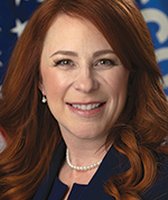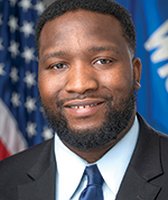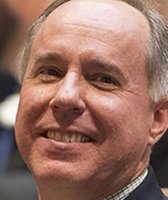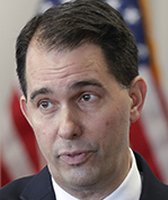Stand up for the facts!
Our only agenda is to publish the truth so you can be an informed participant in democracy.
We need your help.
I would like to contribute
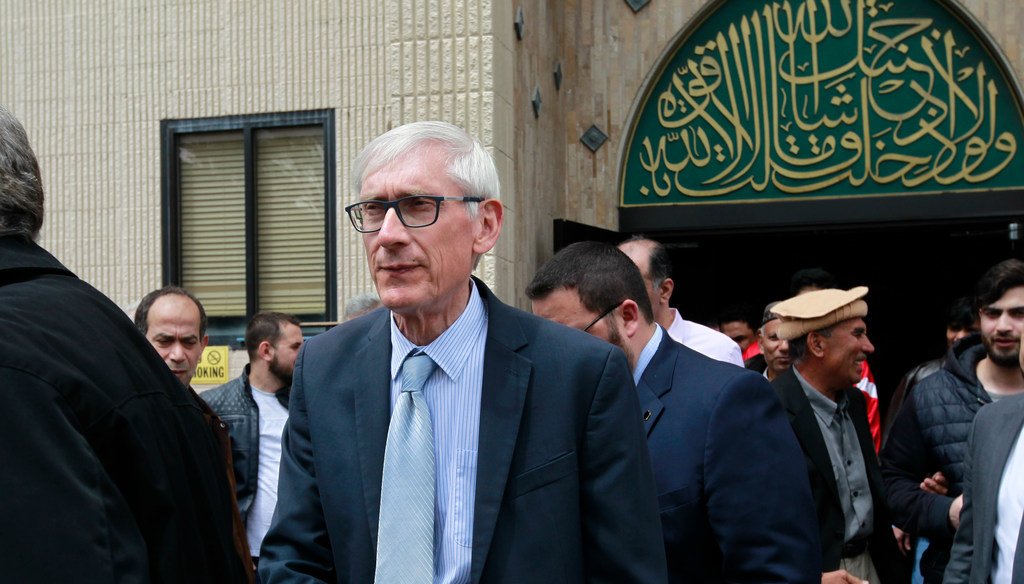
The budget battle with Republicans has left some of Gov. Tony Evers' campaign promises in limbo. (Angela Peterson/Milwaukee Journal Sentinel)
Earlier this month, Wisconsin Gov. Tony Evers signed his second state budget into law, an $87.3 billion spending plan charting the state’s path over the next two years.
Much has happened since he headed out on the campaign trail and first took office, but Politifact Wisconsin is still monitoring 27 of his campaign promises using the Evers-O-Meter.
Now that he’s had his final shot of his first term at assigning budget dollars to his priorities, we’re updating his progress on those promises.
Here’s a look at eight of them.
Bipartisan 2021-23 budget does include a middle-class tax cut
In signing the state budget into law on July 8, 2021, Gov. Tony Evers OK’d a Republican plan for tax cuts that would reduce the state’s third tax bracket to 5.3%.
Tax cuts were at the heart of the GOP-written, $87.3 billion spending plan, to which Evers made only minor vetoes. That tax bracket includes individual Wisconsinites making as much as $263,000 a year and married residents making as much as $351,000.
In his original campaign promise, Evers said he would cut income taxes in his first budget for individuals making up to $100,000 and families making up to $150,000.
While the cut didn’t happen until his second budget, and isn’t as targeted at people making less as he had originally proposed — about three-quarters of the tax cuts would go to those making $100,000 or more a year — it still accomplishes his end goal.
That said, the original promise was for the cut to be achieved in his first budget. With that in mind, we give this a final rating of Compromise.
Some movement in budget, but Evers provided boost through COVID stimulus money
Gov. Tony Evers hasn’t had much luck since he took office in persuading Republicans who control the state Legislature to adopt his proposals for early childhood education.
His first budget proposal provided $85 million to fund increases in the Wisconsin Shares childcare program and a little over $1 million to improve child care options in one Milwaukee ZIP code. But Republicans rejected his efforts to provide grants for childhood education, summer school and teacher certification in urban school districts.
They also blocked his push to count 4-year-old kindergarten students for state aid and revenue purposes.
This budget cycle, Evers’ Child Care Strong initiative would have put about $106 million toward child care quality improvement programs that would have provided monthly payments to providers that are certified, licensed or established by a school board. He also included more than $3 million to fund social emotional learning for young children, which helps kids develop skills to manage their emotions and attitudes.
Republicans on the Joint Finance Committee chopped both from the budget.
They did agree on nearly $100 million in Temporary Assistance for Needy Families over the next two fiscal years, which Evers said in his veto message would make child care more affordable and accessible for parents.
And Evers did commit more than $130 million in CARES Act money to childcare and early childhood education last fall, including $50 million for Child Care Counts, a program to distribute federal relief money to child care providers.
So although he didn’t see all that he wanted in the budget for early childhood education, funds did come from elsewhere. And with these ratings, we focus on the outcome.
We rate this Promise Kept.
New budget raises state funding for schools to two-thirds level
As he did in his first budget, Wisconsin Gov. Tony Evers proposed increasing school funding to return it to a level where the state paid for two-thirds of public school costs.
The two-thirds level was standard in the late 1990s and early 2000s, but hasn’t been met since 2004. This year, state Republicans opted to include the provision in their budget — with a twist.
Much of that state funding comes in the form of a property tax cut, so it is not money that can be spent in the classroom. Evers expressed disappointment with how Republicans handled public instruction in other parts of the budget, namely that it included just a tenth of the funding for schools that he had originally proposed.
School districts are receiving $2 billion in federal pandemic aid, a fact Republicans noted in reducing Evers’ request, but the money is not permanent and is not being distributed evenly, which means some school district officials are concerned they will have to lay off teachers or go to referendum to maintain programs.
Still, Evers’ campaign promise didn’t specify that the two-thirds funding make it directly into school districts’ coffers.
We rate this Promise Kept.
Evers makes progress in second budget with big plans for broadband expansion
In his proposed 2021-23 budget, Gov. Tony Evers declared 2021 the "Year of Broadband," proposing nearly $200 million to invest in high-speed internet access across the state — five times the amount included in the three budgets before he took office combined.
While Republicans in the state Legislature didn’t meet his entire request, the signed budget will dedicate $129 million over the next two years to expand the Broadband Expansion Grant Program. The state’s 2019-21 budget — the first from Evers — included just $48 million for broadband expansion.
The state funds come in addition to $100 million in federal coronavirus stimulus money Evers has said he’ll put toward expanding broadband access.
About 430,000 rural Wisconsinites live without access to broadband, according to a state estimate, or a quarter of the state’s rural population.
It will remain to be seen whether this budget’s investment will close that gap and allow Evers to make good on his promise to bring high-speed Internet to all Wisconsinites — but he continues to move the needle toward it.
We keep this promise In the Works.
No money in the latest state budget for lead abatement, but relief could come from feds
On the campaign trail, Gov. Tony Evers said he would expand the state’s lead abatement efforts through tax credits and other programs.
In Wisconsin, children under age 6 are considered the most vulnerable to the effects of lead exposure, according to the state Department of Health Services. In 2018, 4.5% of Wisconsin children under 6 had blood lead levels of 5 mcg/dL or above, the state’s most recent data show.
During his first years in office, Evers established a lead pollution czar to lead a statewide push to eradicate lead contamination, and state Republicans approved a smaller share of the dollars he’d asked for in his first budget — $14 million — to fund lead abatement in homes occupied by low-income children and pregnant people who are eligible for government assistance.
Evers also proposed in his first budget using state funds to cover costs of replacing lead service lines, a provision Republicans removed.
In his 2021-23 budget, Evers tried again to dedicate $40 million to covering costs of replacing those lines. Republicans rejected it again.
But the governor has signaled that he will send federal stimulus money to the effort. That includes in Milwaukee, where leaders are planning to chip in American Rescue Plan Act money to continue replacing the nearly 70,000 lead service lines still left in the city.
Though Evers has largely been unsuccessful at state-funded efforts to boost lead abatement, federal dollars could help advance the state’s work.
Because this is the final budget of Evers’ term, and because the governor is instead looking to stimulus money to help address the issue, we rate this Compromise.
Still no government watchdog as Evers promised to create
About two years ago, we rated Gov. Tony Evers’ pledge to create an independent Office of the Inspector General "Stalled."
When he ran for governor, his campaign website said he would create the office "to ensure families have an independent, nonpartisan watchdog keeping an eye on our Wisconsin government."
It could have been created with an executive order, but nine months into his term, we wrote, he had yet to do so.
Today, 30 months into his term, Evers still hasn’t created the office. And there is no indication any action is forthcoming.
Evers spokesperson Britt Cudaback said in an email that his most recent biennial budget was "primarily aimed at addressing the immediate needs of the state and (supporting) our state’s economic recovery in the midst of the coronavirus pandemic."
He is hopeful that his next biennial budget could include a proposal for the office, Cudaback said.
But that, of course, depends on a future term. And the promise was for his first term.
We rate this Promise Broken.
Evers’ newest budget includes one-time funds for a local road improvement program
In the second budget of his term, Gov. Tony Evers once again moved to increase spending on local road maintenance.
Evers’ first budget included nearly $400 million in new money for road maintenance, money that flowed from a GOP-backed plan to raise title fees people pay when they buy their vehicles.
He did not try this time for long-term transportation funding methods like raising the gas tax, which he campaigned on and Republicans rejected in his previous budget.
But when he signed the $87.3 billion Republican-written budget on July 8, 2021, it included $100 million for a one-time local road improvement program. It also included a 2% increase in each year for the general transportation aids program that helps municipalities offset the costs of road construction and maintenance.
We leave our rating Promise Kept.
More than halfway through Evers’ term, WEDC looks here to stay
We wrote in 2019 that the governor had flipped his position on dissolving and replacing the Wisconsin Economic Development Corporation, a public-private partnership that oversees grants and loans given to businesses in exchange for the promise of new jobs.
On the campaign trail, Evers had been critical of WEDC, created by former Gov. Scott Walker, calling the agency "a constant source of controversy, inefficiency and ineffectiveness" in a 2018 interview.
By November of that year, he had announced plans to replace it with a state agency.
State Republicans blocked him from taking action by giving themselves control over WEDC for the first nine months of his term in 2019.
Nearly two years after he regained control, however, those plans have not materialized, and WEDC is still up and running.
Evers spokesperson Britt Cudaback said the agency has entered "a new era of transparency and accountability" under the governor and WEDC Secretary and CEO Missy Hughes.
Maybe so. But that was not the promise made.
We rate this Promise Broken.
Our Sources
PolitiFact Wisconsin
Office of Gov. Tony Evers


